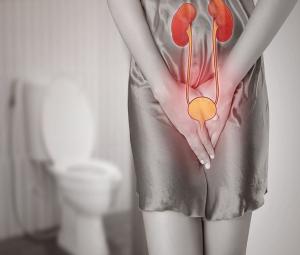From Food to Illness: What’s Causing the Change in Your Urine Smell?
By Lokmat Times Desk | Updated: August 14, 2025 08:07 IST2025-08-14T01:41:16+5:302025-08-14T08:07:54+5:30
In our daily lives, we often ignore small changes in our body. One such change is the smell of ...

From Food to Illness: What’s Causing the Change in Your Urine Smell?
In our daily lives, we often ignore small changes in our body. One such change is the smell of urine. Generally, urine has a mild smell due to the presence of urea, creatinine, and other waste products in the body. However, sometimes the odor suddenly becomes strong, sweet, rotten, or unusually strange. Many people assume this happens simply because they drank less water and dismiss it. But health experts say urine odor is not just related to water intake — it can be a warning sign about your health. The smell of the first morning urine is usually stronger because the body uses up water overnight, making the urine more concentrated. But if the smell persists even after drinking enough water during the day, further investigation is necessary. Understanding the various reasons behind unusual urine odor is important. Let’s look at five major causes and the precautions to take.
1. Effect of certain foods and drinks
Sometimes, what we eat or drink directly affects the smell of our urine. For example, foods like asparagus, garlic, onions, fish, or spicy meals can alter the smell. Similarly, excessive consumption of caffeine (coffee, tea) or alcohol can make urine more concentrated, resulting in a stronger odor. These changes are usually temporary, and drinking plenty of water can help reduce them.
2. Urinary Tract Infection (UTI)
A sudden strong and foul smell in urine, along with burning sensation, frequent urination, or pain in the lower abdomen, may indicate a UTI. This infection is usually caused by bacteria and, if left untreated, can spread to the kidneys. While more common in women, men can also be affected.
3. Effect of medications and vitamin supplements
Certain antibiotics, B-complex vitamins, or specific medicines can change the smell of urine. The components of these drugs are excreted through urine, altering its odor. Usually, the smell returns to normal once the medication is stopped or the course is completed. However, if the change persists, it is advisable to consult a doctor.
4. Risk of diabetes and ketoacidosis
If urine has a fruity smell, it could sometimes be due to diabetes. When blood sugar levels are very high, the body expels excess glucose through urine. In some cases, this odor can be a sign of “ketoacidosis,” a serious condition mainly seen in type 1 diabetes. This requires immediate medical attention.
5. Kidney or liver problems
A rotten, extremely unpleasant smell in urine can sometimes indicate liver or kidney dysfunction. If urine is also dark, foamy, or shows traces of blood, immediate medical consultation is necessary. Ignoring such symptoms can lead to serious long-term health problems.
Precautions to take:
* Drink 8 to 10 glasses (about 3–4 liters) of water daily.
* Have natural detox drinks like coconut water, lemon water, basil seed water, or chia seed water.
* Do not hold urine for long — relieve yourself promptly.
* Avoid eating outside junk food.
* Consult a doctor if symptoms persist.
Disclaimer: This article is for general information purposes only. It is not a substitute for medical advice, diagnosis, or treatment. Always consult your doctor for more details. MT does not take responsibility for the accuracy, reliability, or effectiveness of the information.
Open in app